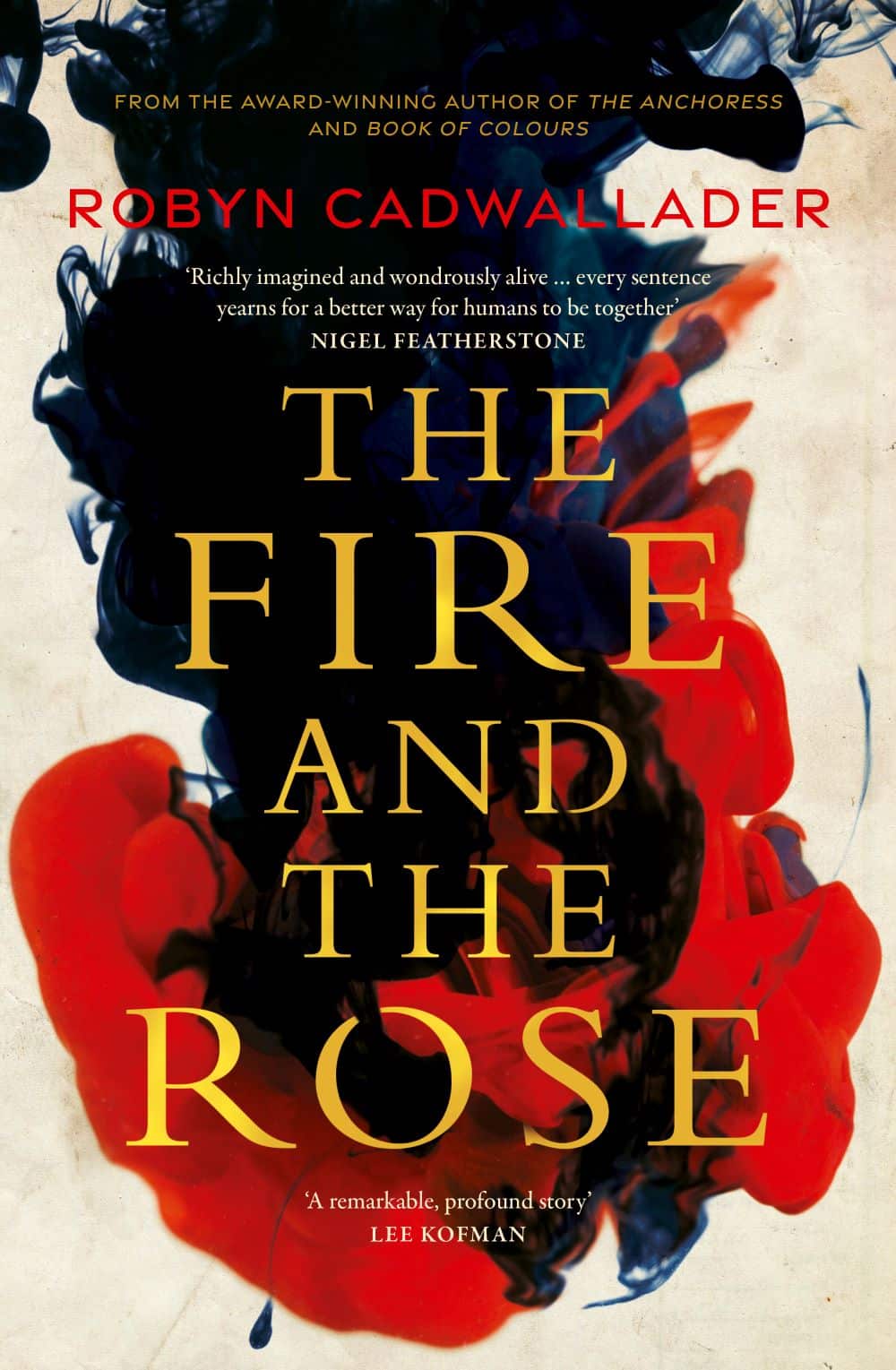Times gone by, romance between lovers ordered apart, and a government imposing tyrannical laws provide compiling plotlines for any great novel. Even more so when there are elements of truth. Award-winning Canberra author Robyn Cadwallader marries these elements in her newest novel, The Fire and the Rose.
The book is set near the end of the 13th century, in the important trading town of Lincoln in England, in the leadup to King Edward I’s expulsion of all Jews from England. Lincoln was home to one of the five most important Jewish communities in England.
The heroine is Eleanor, a young woman who can read and write, but whose marriage prospects are blighted by a port-wine birthmark on her face. Forced to leave her home village, she comes to Lincoln to work as a housemaid – but she hopes to become a scribe, something not common for women of the time. Closed off to marriage because of her birthmark, Eleanor carries troubles and hurt from her past, but she meets Asher, a local Jewish spicer, and the two develop trust and romance.
“A relationship between Jews and Christians was forbidden because there was a strong prejudice against Jews, and they were told that they weren’t to mix other than for business,” Ms Cadwallader says. “So Eleanor and Asher are in this relationship in private.“
Eleanor was the heroine of Ms Cadwallader’s previous novel, The Anchoress; however, she says this one serves more as a companion than a sequel. People picking up the author’s works for the first time with The Fire and the Rose will enjoy it just as much as those who have read about Eleanor before.
“There is reference back to The Anchoress because Eleanor thinks about her childhood, but it probably makes it a little more interesting,” Ms Cadwallader says. “But it does stand by itself.”

With a strong interest in English literature, Ms Cadwallader was drawn to the expressive language and strong storytelling that is present in medieval literature. She says the more you read about history, the more you tend to pick up. Her interest in this particular story grew from the expulsion of the Jews and the fact that this period was so little known.
“They were invited into England by William the Conqueror in 1066, mostly because he wanted them to help finance the building of a nation,” explains Ms Cadwallader. “The Jews were really the target of religious prejudice because they didn’t believe what Christians thought they should believe. I was horrified at the thought that people who had lived there for 200 years – these were generations of Jews – were suddenly told they had to leave the country.”
The author had no connection to the Jewish faith, so consulted members of the community, as well as her publishers and agents, who felt it was an important story to tell. The author researched belief structures, the world of moneylending, and the attitudes of the time. She travelled to Lincoln twice and spoke to people who lived there and others travelling through. She was surprised to know that many locals didn’t know the story either.
However, many knew the story of Little Saint Hugh of Lincoln. The cathedral of Lincoln holds a crypt of a young boy, whom Jewish people of the time were accused of capturing, torturing, and killing for religious rituals. There was no evidence of this, and around 80 members of the Jewish community were killed in retaliation.
“He was buried there, and was pronounced a saint and a martyr. People came to visit the cathedral and to pray to him. He’s never quite properly beatified by the church, but his crypt remained there, with this story saying he’d been cruelly killed by Jews. It was only relatively recently that the cathedral said it wasn’t a true story.”
Though the book is set hundreds of years in our past, Ms Cadwallader says that it doesn’t just fit there; historical fiction often gives us a better understanding of the present day. Through The Anchoress, she explored attitudes towards women and their bodies, while in this one she explores how a race was singled out.
“One of the reasons that I wanted to tell this story is that the demonizing of the other who is different from us, is very current, very much an issue for us now,“ says Ms Cadwallader.
The Fire and the Rose by Robyn Cadwallader is available in bookshops and online now. Author’s website: robyncadwallader.com.
Get the latest Canberra news, sport, entertainment, lifestyle, competitions and more delivered straight to your inbox with the Canberra Weekly Newsletter. Sign up here.
